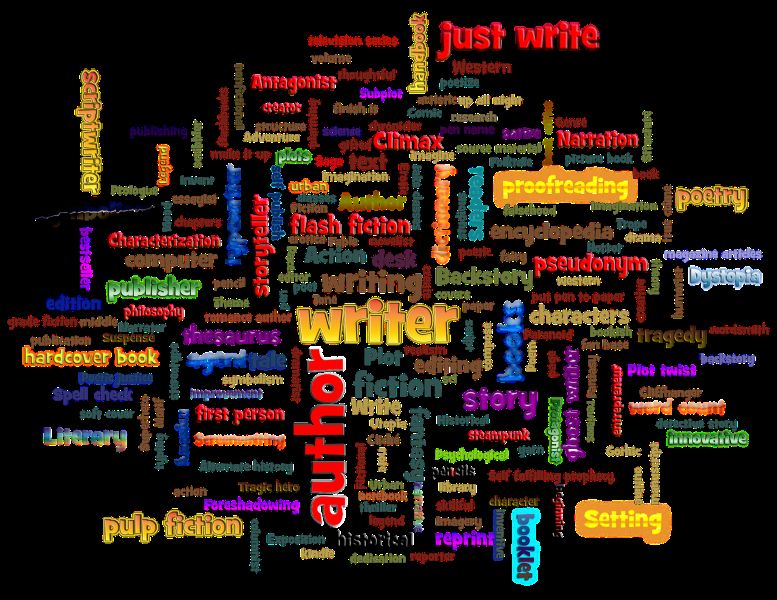Sometimes I really amaze myself with how clever I can be. Or at least how open minded I am to new concepts. When faced with a problem, I try to not force a solution, allowing ideas to arise in my mind that I had heretofore not considered or even knew existed. Interestingly, when I decide to act upon these newfound ideas, I discover they’re not new at all; rather, they’ve always been accessible, rational and common. They had always been there for the taking but I wasn’t yet ready to receive them.

Last week, while perusing resumes in the popular LinkedIn database, I had the brilliant idea to add another search to my daily tasks: Literary Agents. To my surprise, my nationwide search brought forth more than 1,500 Literary Agents who were “open to work,” according to their profiles. Now one might wonder why I had never thought to do this in the past—as I have long wished to have an agent market my books—and I have no good reason for not doing it other than I had never thought about it.
Still, that many literary agents on LinkedIn open to work got me wondering about stability in their industry. Many of the candidates I viewed had little loyalty to past employers, with just one- and two-year stints at various literary agencies. Why? And when I delved deeper to reveal the job titles they were open to, I was astonished that most were not seeking another Literary Agent role. Instead, they aspired to roles such as Editor, Book Editor, Copyeditor, Copywriter and Proofreader. Did this mean that being a Literary Agentwas not all it was cracked up to be? It wasn’t as glamorous or as rewarding as it was perceived to be? Was there a high rate of burnout? I intended to find out by messaging those candidates I thought might be viable agents for me and my novels.
Legit Literary Agents
Among such pertinent information on the profile of the first of more than 1,500 candidates that came up in my search—”fiction author and publisher, book writing coach, editor and self-publishing guide”— was her two years of experience as a literary agent at what appeared to be two solid agencies. Curious, I messaged her and received an immediate response. Ecstatic, I replied to her, and we set up a time to talk in a few days. I had no idea what she had to offer me, but she seemed sincere and if things didn’t work out with her, I would ask her for referrals in her network.
Continuing down the list of Literary Agents open to work, I messaged a few more that appeared to have what I wanted. Sadly, no one else responded to my messages that day. Perhaps my succinct and carefully crafted “InMail” wasn’t crafty enough or maybe none of them was interested or able to take on a freelance job of representing an unknown author. No worries, I thought. Next week I would target those not open to work, just to test the waters.
Wanting to delve more deeply into the world of Literary Agents, I searched online for “how to choose a literary agent,” “self-publishing,” as well as “self-publishing scams.” (I have a perverse love of reading about the plethora of scams in the publishing realm.) As one link led to another and then another, I found myself on a forum (like Redditt) where someone supposedly in the know posted about literary agents not being appropriate or even necessary for fiction writers. Now this got my attention, and it led me down a rabbit hole I didn’t see coming. I started reading all the comments and comments about comments and I had to stop after fifteen minutes. I had to get off the forum and start searching for legit literary agencies just to see if this was true.

Before I did that, I needed to find names of agencies. So, I returned to my saved search on LinkedIn and clicked on a new profile of a Literary Agent who was open to work. I then looked up her current employer, which sounded like an authentic agency. And as if to substantiate my belief that literary agents are appropriate for any type or author, whether a fiction or nonfiction writer, ALL the writers represented by the agents of this company were fiction writers!
Being Discovered
My conversation with the woman I had set up a call with was useful, but it was not information I wanted or expected to hear. I anticipated being told what steps I’d need to take to attain an agent—whether that be with her or with someone she would recommend—and instead it seemed as if she were directing me away from getting an agent. Among other things, she told me I needed to be “discovered,” because no one knew me or knew anything about my books. Well, duh! Additionally, she said having a book published by a major publishing house doesn’t guarantee anything, least of all making money. Rather, in her professional opinion, self-publishing may be the best route to take for someone like me. It was a feasible way, she continued, to control the amount of money made off the books I’d sell. Really? I went down that road a few times and I was still not getting anywhere.
It’s all about control, she said, suggesting starting one’s own self-publishing company is the way to make more money off each book sold. And, it turns out, this was the main reason she wanted to talk to me. She was testing a new self-publishing platform she created, and she was looking for collaborators. Authors like me who needed to be “discovered,” having been frustrated with past self-publishing experiences and horror stories.
I thanked her for her thirty minutes of “introductory” time and said it was an interesting idea; one I would be happy to check out and think about. I hung up feeling frustrated yet hopeful. Perhaps closer to my goal. Whatever that may be.

